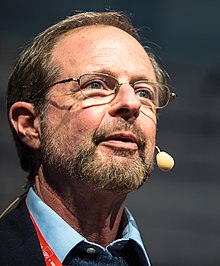Ethics and Empirics of Engineering Humanity Series

Dr. Robert Epstein will be the first speaker. He will speak about mechanisms used by tech companies.
October 5, 2022
Beginning on Oct. 24, the Charles Widger School of Law will host The Ethics and Empirics of Engineering Humanity Series. This interdisciplinary series will welcome speakers to campus on Nov. 27, March 20, March 27 and an additional date in the spring, which has yet to be announced.
The Oct. 24 and Nov. 27 lectures will be held from 3:45-5:45 p.m. in the Law School’s Room 102. Spring lectures will be held 4-6 p.m. in a location that has yet to be determined. No prior registration is required to attend.
“This interdisciplinary speaker series will cover ethical, philosophical and empirical issues surrounding the engineering of artificial and human intelligence,” the series’ website page states. “These include the dynamic interactions between AI and HI, how human-computer-interfaces affect humanity, how humans outsource thinking to computers and other related technologies, how digital technologies transform the production, dissemination and validation of knowledge, and how ethical values translate into technological and social decisions that affect who we are and who we are capable of being.”
This series has been made possible by a grant from the Office of Provost for Teaching and Learning and is co-sponsored by the Department of Philosophy. It has been organized by members of the law school faculty, Georg Theiner, Ph.D. (Associate Professor, Philosophy and Executive Editor, Social Epistemology) and Brett Frischmann (Charles Widger Endowed University Professor in Law, Business and Economics).
Scheduled speakers for lecture series include Robert Epstein, Ph.D. (Senior Research Psychologist, American Institute for Behavioral Research and Technology), Susan Schneider, Ph.D. (Founding Director, Center for the Future Mind), Emily Hund, Ph.D. (Author, The Influencer Industry: The Quest for Authenticity on Social Media), Matthias Scheutz, Ph.D. (Professor of Computer Science, Director of the Human-Robot Interaction Laboratory and Director of the Human-Robot Interaction Degree Programs, Tufts University) and Barry Smith, Ph.D., FACMI (SUNY Distinguished Professor of Philosophy and Julian Park Chair).
In 2019, Theiner and Frischmann received a grant for an annual cross-college seminar class, “The Ethics and Empirics of Engineering Humanity” (LAW 6262), that was open to students of all colleges at the University. This course offered a unique course format organized around presentations from scholars in related fields.
According to this course’s syllabus, learning outcomes of this class included “thinking critically about human-technology relations” and “thinking critically about ethical and legal issues that accompany techno-social engineering.”
“This course was organized around prominent speakers who would send us some of their latest material, and then give a talk at our seminar that would allow students to interact closely with them in the more intimate setting of a seminar,” Theiner said of this 2019 LAW 6262 course.
After the success of this seminar course, Theiner and Frischmann planned to offer the program again in Fall 2020. However, the pandemic caused their plans to shift.
“We had already invited speakers for fall 2020, but when COVID hit, we had to cancel the seminar,” Theiner said. “Because of the great importance we attach to face-to-face interactions with the speakers, we decided not to offer it in a virtual format.”
Despite this challenge, the Ethics and Empirics of Engineering Humanity Series will be returning to campus shortly after a two-year hiatus. Differing from the 2019 course seminar, this year’s program will be a lecture series instead.
“There is a growing consensus that society needs to confront a host of ethical issues surfacing in our digital networked environment,” Theiner said when asked why students should attend this series. “Many leading academic institutions are developing new Centers and Programs focused on these topics. Our speaker series is a rather modest first step for Villanova to be a part of that conversation. It’s also a reasonable and effective way to bring Villanova faculty and students interested in these issues together.”
For students who are interested in further exploring topics relating to the lecture series, Theiner will be offering a similar course in the spring: PHI 2990-001(TOP: Engineering Humanity).
“Our speakers will come to class and discuss the topic of their talk in a conversational and informal setting that allows for close, personal interactions with some of the most prominent researchers in the field,” Theiner said while describing his course.
Theiner found it important to underline that PHI 2990-001 is not a “typical” philosophy class. This is because the course focuses on the impact of digital technology on humanity.
“The issues humanity faces in its dealings with emerging digital technologies are complex and largely unprecedented,” he said. “They require interdisciplinary reflection and collaborative problem-solving. It is designed to attract students with diverse backgrounds and interests but a shared concern for the future of humanity. The material we’ll work through – and the topics of our speakers – cuts across the domains of science, religion, humanities, technology, ethics and the law. The course will thus provide a unique opportunity for peer learning and cross-disciplinary discussion.”
To learn more about the Ethics and Empirics of Engineering Series please visit htps://www1.villanova.edu/university/law/about/news-events/events/2022/0929.html.
Additionally, for questions relating to the series or the PHI 2990-001 course being offered in the spring, please feel free to contact Georg Theiner ([email protected]) or Brett Frischmann ([email protected]).










